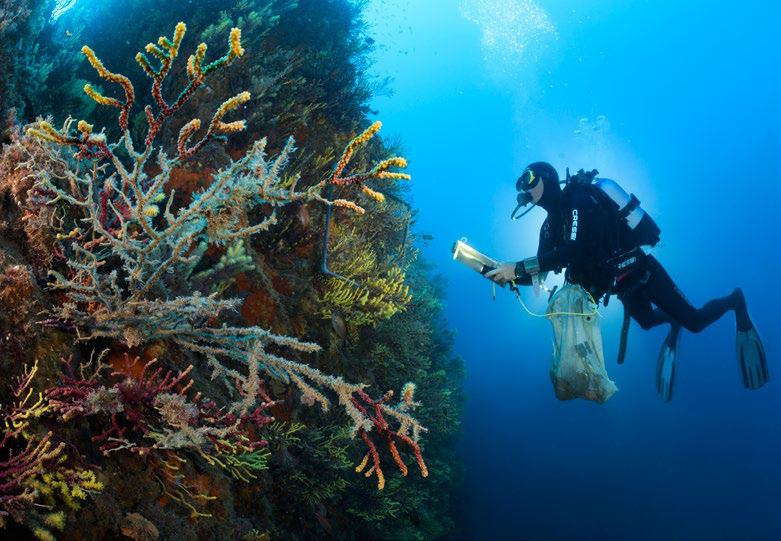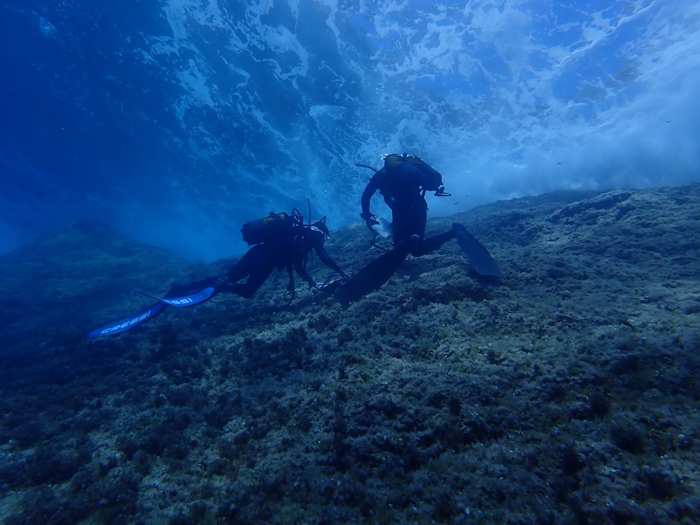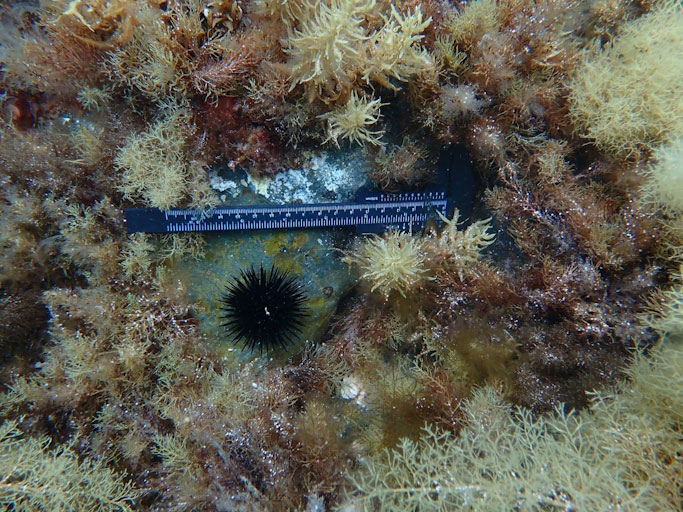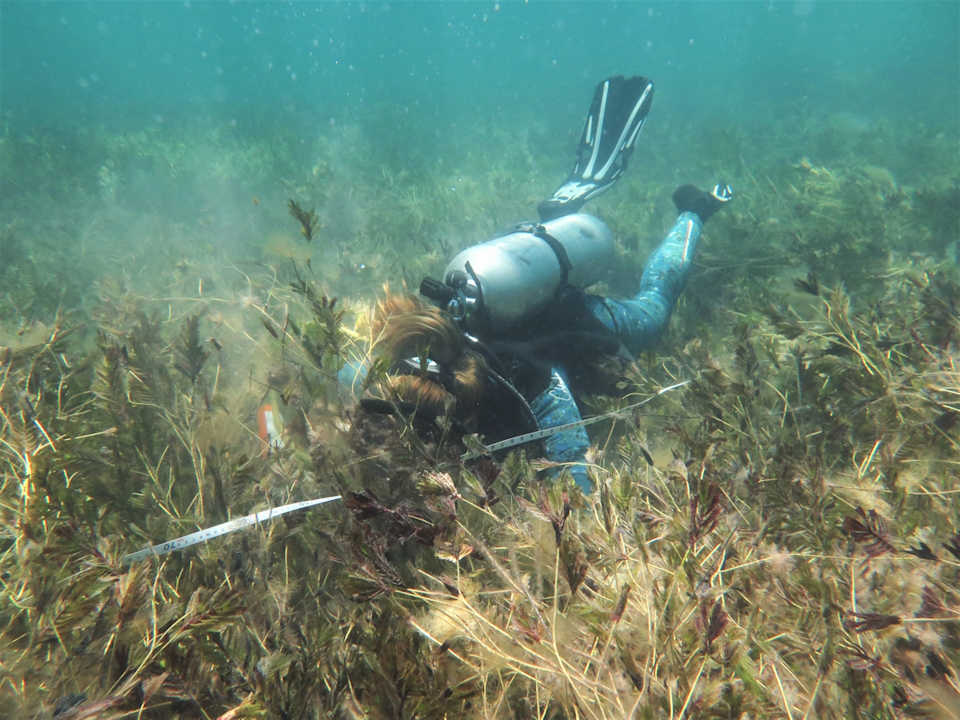Episodes of extreme heat in the water are becoming the new normal in the Mediterranean. They occur throughout the basin and severely harm native species. In contrast, they benefit invasive species, most of which come from warmer waters. The latest themed issue of the CSIC magazine, Oceans, dedicates a section to this issue.
The conclusions of a study published in 2022 in the journal Global Change Biology, led by the Institute of Marine Sciences (ICM-CSIC) and with the participation of the Blanes Center for Advanced Studies (CEAB-CSIC), as well as other national and international research institutions, are summarized.
The study showed that the populations of more than fifty native species (including corals, sponges, and macroalgae, among others) had been severely affected by the series of heatwaves that occurred between 2015 and 2019, even suffering recurrent mass mortality events over these five years. The research was conducted over thousands of kilometers of Mediterranean coasts, from the Alboran Sea to the coasts of the Near East, providing a comprehensive picture of the impacts of marine heatwaves on different Mediterranean organisms and ecosystems.
“The impacts of the mortalities were observed between the surface and 45 meters deep, where the recorded marine heatwaves were exceptional, affecting more than 90% of the Mediterranean and exceeding 26ºC in some areas,” explains Joaquim Garrabou, a researcher at ICM-CSIC and one of the study’s authors.
Key Species, the Most Affected
Some of the animals and plants most affected by mass mortality events are key to the biodiversity and overall health of Mediterranean ecosystems. Among them are, for example, the seagrass meadows of Posidonia oceanica, gorgonian populations, and macroalgae.
Emma Cebrian, a researcher at CEAB-CSIC and one of the study’s authors, explains that they are like the “trees” of the sea. “They give structure to the habitat”; so if they are lost, the life that depends on them also disappears.
With the study now highlighted by the magazine Oceans, the team has been able to demonstrate that there is a significant positive relationship between the duration of heatwaves and the incidence of mortality events. The longer the episode of extreme heat, the greater the mortality.
“Mass mortality events in the Mediterranean are equivalent to the bleaching events observed consecutively in the Great Barrier Reef of Australia, suggesting that these episodes are becoming the norm rather than the exception,” explains Alfonso Ramos, a professor at the University of Alicante (UA) and also a co-author of the study.
For all these reasons, the researchers urge action in response to the climate emergency and emphasize the need to strengthen coordination among different stakeholders to act as effectively and quickly as possible. They also stress that, besides the rising temperature, urgent action is needed against equally or more severe threats, such as construction/urbanization, which continues to be responsible for the disappearance of countless coastal and marine ecosystems, pollution reaching seas and oceans, or harmful activities like overfishing, irresponsible anchoring of boats, or excessive visitation of natural spaces.









